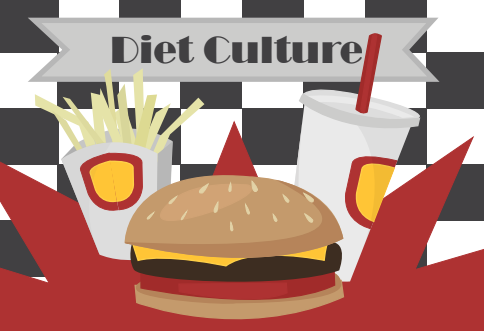As I watch another TikTok of an influencer stuffing their face with enormous amounts of food, I wonder if anyone else finds the mukbang trend repulsive.
In mid-August 2024, there were over four million videos with the mukbang hashtag on TikTok according to CNN. These short-clip videos promote people showing off their copious amounts of food before a zoomed-in take of them gobbling it down. From Italian to Asian cuisine, it becomes a contest of how much will fit into the mukbanger’s stomachs until they get sick.
YouTube star Nikocado Avocado raised awareness of unhealthy eating habits by posting old videos of himself participating in the fad while on a 250-lb weight loss journey. His physical transformation shocked fans.
This odd social experiment allowed others to step back and examine what benefits these videos bring to society. I found myself venturing towards the more tame “What I Eat In a Day” videos made in aesthetic kitchens, emphasizing the low-calorie, healthy lifestyle. These clips inspired many new recipes but had a more sinister aspect of comparison: creating unrealistic expectations of food intake.
These girls make three meals a day from scratch, each with perfect portions including all the food groups. If they are not cooking, they are dining at fancy restaurants and ordering expensive dishes far out of my budget.
By exposing me to the endless varieties of salad, pasta and bread, I was immediately drawn in, reveling at the people’s ability to drop hundreds of dollars on a single dinner.
As a self-proclaimed foodie, I love nothing more than a quality meal, but the level of food waste and damaging eating rituals normalize intentional food waste. Many individuals struggle with food insecurity and the flaunting of food portrays unrealistic standards of wealth as well.
It is important when looking at these mukbang videos to understand the negative impact they have on society in regards to diet and eating out norms. These unrealistic standards interest us, but seeing these videos as fun is far different than harmful participation. Eating thousands of calories in one sitting is hard to regulate in terms of maintaining a well-balanced diet.
Science Direct says that mukbang watching leads people to “mimic” the content creators because of the misrepresentation of what that level of consumption actually does to the body. The thin person you see in the video is not what you will look like if you join them in feasting on the same gigantic mounds of food.
We viewers need to be conscious of how what we watch impacts how we act. These videos of people testing the limits of their stomachs might seem fun and appetizing but are not good examples of reality. We must do all we can to help our bodies carry out their intended functions that make us feel our best.









